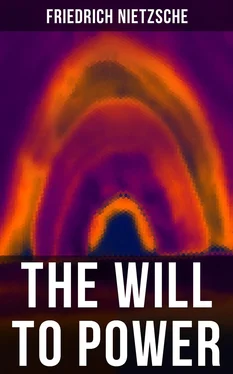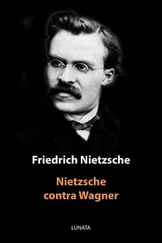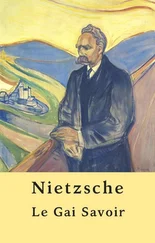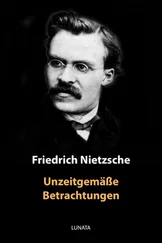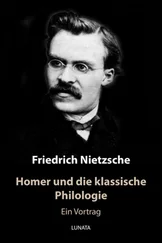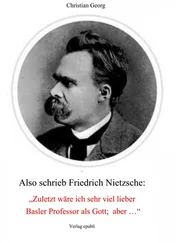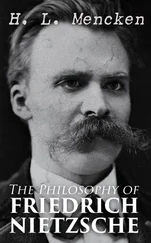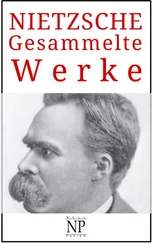Friedrich Nietzsche
Nietzsche: The Will to Power
Including Autobiographical Work "Ecce Homo” & Personal Letters
Published by

Books
- Advanced Digital Solutions & High-Quality eBook Formatting -
musaicumbooks@okpublishing.info
2017 OK Publishing
ISBN 978-80-272-2078-6
The Will to Power (Vol. 1&2) The Will to Power (Vol. 1&2) Translated by Anthony M. Ludovici Table of Contents
Ecce Homo: How One Becomes What One Is (An Autobiography)
Selected Personal Letters
The Will to Power
(Vol. 1&2)
Translated by Anthony M. Ludovici
Table of Contents Table of Contents The Will to Power (Vol. 1&2) The Will to Power (Vol. 1&2) Translated by Anthony M. Ludovici Table of Contents Ecce Homo: How One Becomes What One Is (An Autobiography) Selected Personal Letters
Table of Contents Table of Contents The Will to Power (Vol. 1&2) The Will to Power (Vol. 1&2) Translated by Anthony M. Ludovici Table of Contents Ecce Homo: How One Becomes What One Is (An Autobiography) Selected Personal Letters
VOLUME I Volume I Table of Contents
PREFACE Preface Table of Contents 1. Concerning great things one should either be silent or one should speak loftily:—loftily—that is to say, cynically and innocently. 2. What I am now going to relate is the history of the next two centuries. I shall describe what will happen, what must necessarily happen: the triumph of Nihilism. This history can be written already; for necessity itself is at work in bringing it about. This future is already proclaimed by a hundred different omens; as a destiny it announces its advent everywhere, for this music of to-morrow all ears are already pricked. The whole of our culture in Europe has long been writhing in an agony of suspense which increases from decade to decade as if in expectation of a catastrophe: restless, violent, helter-skelter, like a torrent that will reach its bourne, and refuses to reflect—yea, that even dreads reflection. 3. On the other hand, the present writer has done little else, hitherto, than reflect and meditate, like an instinctive philosopher and anchorite, who found his advantage in isolation—in remaining outside, in patience, procrastination, and lagging behind; like a weighing and testing spirit who has already lost his way in every labyrinth of the future; like a prophetic bird-spirit that looks backwards when it would announce what is to come; like the first perfect European Nihilist, who, however, has already outlived Nihilism in his own soul—who has out-grown, overcome, and dismissed it. 4. For the reader must not misunderstand the meaning of the title which has been given to this Evangel of the Future. " The Will to Power: An Attempted Transvaluation of all Values "—with this formula a counter-movement finds expression, in regard to both a principle and a mission; a movement which in some remote future will supersede this perfect Nihilism; but which nevertheless regards it as a necessary step, both logically and psychologically, towards its own advent, and which positively cannot come, except on top of and out of it. For, why is the triumph of Nihilism inevitable now? Because the very values current amongst us to-day will arrive at their logical conclusion in Nihilism,—because Nihilism is the only possible outcome of our greatest values and ideals,—because we must first experience Nihilism before we can realise what the actual worth of these "values" was.... Sooner or later we shall be in need of new values.
BOOK I. EUROPEAN NIHILISM Book I. European Nihilism Table of Contents
A Plan
I. Nihilism
1. Nihilism As an Outcome of the Valuations and Interpretations of Existence Which Have Prevailed Heretofore
2. Further Causes of Nihilism.
3. The Nihilistic Movement As an Expression of Decadence.
4. The Crisis: Nihilism and the Idea of Recurrence.
II. Concerning the History of European Nihilism
(a) Modern Gloominess.
(b) The Last Centuries.
(c) Signs of Increasing Strength.
BOOK II. CRITICISM OF THE HIGHEST VALUES THAT HAVE PREVAILED HITHERTO
I. Criticism of Religion
1. Concerning the Origin of Religions.
2. Concerning the History of Christianity.
3. Christian Ideals.
II. A Criticism of Morality
1. The Origin of Moral Valuations.
2. The Herd.
3. General Observations Concerning Morality.
4. How Virtue Is Made to Dominate.
5. The Moral Ideal.
A. A Criticism of Ideals.
B. A Criticism of the "Good Man" of the Saint, etc.
C. Concerning the Slander of the so-called Evil Qualities.
D. A Criticism of the Words: Improving, Perfecting, Elevating.
6. Concluding Remarks Concerning the Criticism of Morality.
III. Criticism of Philosophy
1. General Remarks.
2. A Criticism of Greek Philosophy.
3. The Truths and Errors of Philosophers.
4. Concluding Remarks in the Criticism of Philosophy.
VOLUME II
BOOK III. THE PRINCIPLES OF A NEW VALUATION
I. The Will to Power in Science
(a) The Method of Investigation.
(b) The Starting-point of Epistemology.
(c) The Belief in the "Ego." Subject.
(d) Biology of the Instinct of Knowledge. Perspectivity.
(e) The Origin of Reason and Logic.
(f) Consciousness.
(g) Judgment. True—false.
(h) Against Causality.
(i) The Thing-in-Itself and Appearance.
(k) The Metaphysical Need.
(l) The Biological Value of Knowledge.
(m) Science.
II. The Will to Power in Nature
1. The Mechanical Interpretation of the World.
2. The Will to Power as Life.
(a) The Organic Process.
(b) Man.
3. Theory of the Will to Power and of Valuations.
III. The Will to Power as Exemplified in Society and the Individual
1. Society and the State.
2. The Individual.
IV. The Will to Power in Art
BOOK IV. DISCIPLINE AND BREEDING
I. The Order of Rank
1. The Doctrine of the Order of Rank.
2. The Strong and the Weak.
3. The Noble Man.
4. The Lords of the Earth.
5. The Great Man.
6. The Highest Man as Lawgiver of the Future.
II. Dionysus
III. Eternal Recurrence
Table of Contents
In the volume before us we have the first two books of what was to be Nietzsche's greatest theoretical and philosophical prose work. The reception given to Thus Spoke Zarathustra had been so unsatisfactory, and misunderstandings relative to its teaching had become so general, that, within a year of the publication of the first part of that famous philosophical poem, Nietzsche was already beginning to see the necessity of bringing his doctrines before the public in a more definite and unmistakable form. During the years that followed—that is to say, between 1883 and 1886—this plan was matured, and although we have no warrant, save his sister's own word and the internal evidence at our disposal, for classing Beyond Good and Evil (published 1886) among the contributions to Nietzsche's grand and final philosophical scheme, "The Will to Power," it is now impossible to separate it entirely from his chief work as we would naturally separate The Birth of Tragedy, the Thoughts out of Season, the volumes entitled Human, all-too-Human, The Dawn of Day, and Joyful Wisdom.
Читать дальше
